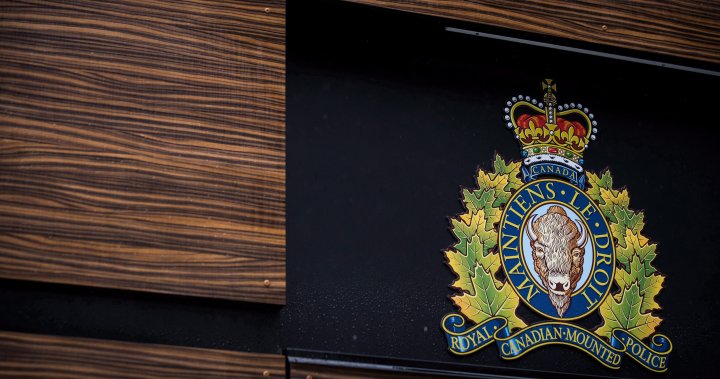The Canadian Security Intelligence Service and Public Safety Canada lacked a system for tracking who received and read specific intelligence on foreign interference, creating “unacceptable gaps in accountability,” the national spy watchdog has found.
In a report made public late Monday, the National Security and Intelligence Review Agency also said CSIS’s distribution of intelligence on political foreign meddling was inconsistent during the last two general elections.
“The rationale for decisions regarding whether, when, and how to disseminate intelligence was not clear, directly affecting the flow of information,” the report said, adding that the threat posed by interference activities “was not clearly communicated by CSIS.”
Moreover, those who received intelligence did not always understand its significance or how to integrate the findings into their policy analysis and decision-making.
The watchdog also said there was disagreement between intelligence units and senior public servants as to whether activities described in briefs amounted to foreign interference or legitimate diplomatic activity.
The review examined intelligence about attempted foreign interference by China in federal democratic institutions and processes from 2018 to 2023, focusing on how the information flowed within the government. Some passages of the report were considered too sensitive to make public.
CSIS confronted a basic dilemma with respect to circulating intelligence during elections, the review agency found.
“On one hand, information about foreign interference in elections was a priority for the government, and CSIS had geared its collection apparatus toward investigating political foreign interference,” the report said.
“On the other, CSIS was sensitive to the possibility that the collection and dissemination of intelligence about elections could itself be construed as a form of election interference. A basic tension held: any action — including the dissemination of intelligence — taken by CSIS prior to or during an election must not, and must not be seen to, influence that election.”
This dynamic was known within CSIS, but “is not formally addressed in policy or guidelines,” the review agency concluded.
Breaking news from Canada and around the world
sent to your email, as it happens.
The consequences of not knowing who has received what information became evident in the case of intelligence related to China’s targeting of a sitting MP — evidently Conservative Michael Chong, though he is not named in the report.
The media and public conversation regarding this intelligence focused on two CSIS memos, one from May 2021 and the other from July 2021, the watchdog report noted.
In fact, neither product was the mechanism through which the minister and deputy minister of public safety were initially meant to be informed of China’s threat activities against the MP and his family, the agency discovered.
Rather, there was CSIS intelligence related to Chong that predated these memos. CSIS sent the intelligence to a list of recipients that included the deputy minister and the minister. Public Safety confirmed to the watchdog that at least one piece of information was provided to the minister prior to May 2021, likely as part of a weekly reading package.
“However, the department was “unable to account” for it.
“This is an unacceptable state of affairs,” the report said.
The intelligence review agency recommended “that, as a basic accountability mechanism, CSIS and Public Safety rigorously track and document who has received and, as appropriate, read intelligence products.”
The watchdog also called for CSIS to develop, in consultation with other players, a comprehensive policy governing its engagement with threats related to political foreign interference.
It said this should make explicit CSIS’ “thresholds and practices” for communicating intelligence regarding meddling. “This would include the relevant levels of confidence, corroboration, contextualization and characterization necessary for intelligence to be reported.”
The policy should also “clearly articulate CSIS’ risk tolerance for taking action” against interference threats and establish explicit approval and notification processes — including external consultations — for all activities related to countering meddling.
Democratic Institutions Minister Dominic LeBlanc, who added the public safety portfolio to his responsibilities last July, welcomed the report, saying it would “inform and bolster our ongoing efforts to better detect, deter, and confront foreign interference.”
The report said senior public servants and the national security and intelligence adviser sometimes did not agree on whether intelligence assessments should be shared with the political executive, resulting in two products not reaching politicians including Prime Minister Justin Trudeau.
The watchdog recommended the security adviser’s role, including with respect to decisions about the circulation of intelligence, be spelled out in law.
Under a federal protocol introduced by the Liberals in 2019, there would be a public announcement if a panel of bureaucrats determined that an incident — or an accumulation of incidents — threatened Canada’s ability to have a free and fair election.
There was no such announcement concerning either the 2019 or 2021 general elections. In both ballots, the Liberals were returned to government with minority mandates while the Conservatives formed the official Opposition.
The panel receives information from sources including the Security and Intelligence Threats to Elections Task Force, composed of representatives of CSIS, the RCMP, Global Affairs Canada and the Communications Security Establishment, Canada’s cyberspy agency.
The intelligence review agency found that the SITE Task Force and the panel “were not adequately designed to address traditional, human-based foreign interference.”
Specifically, the agency noted the task force focuses on threat activities during the election period, but “traditional foreign interference also occurs between elections.”
The agency also found the panel’s high threshold for a public announcement is unlikely to be triggered by such foreign interference, which typically targets specific ridings.
The watchdog recommended the task force “align its priorities with the threat landscape,” including threats that occur outside of the immediate election period. It also said Global Affairs’ representation on the task force should make use of the department’s capacity to analyze and address traditional meddling, not just online threats.
The intelligence review agency’s findings follow a recent interim report from a federal commission of inquiry, which said foreign meddling by China did not affect the overall results of the 2019 and 2021 general elections.
In her report, commissioner Marie-Josée Hogue said while it is possible that outcomes in a small number of ridings were affected by interference, this cannot be said with certainty.



